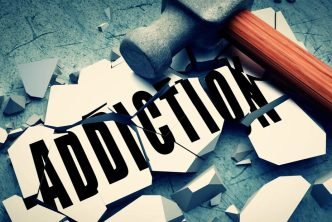It is normal for addicts to get alcoholism triggers during their recovery process. Many people even end up thinking if they will ever get over their addiction.
But there is no reason to lose hope.
A proper combination of medication and lifestyle changes will definitely help you manage your symptoms and effectively control your triggers.
In severe cases, a more serious intervention might be required so treatment should be personalized according to each patient.
Let us take a look at some effective ways to control alcohol triggers.
Table of Contents
Medications
Medication For Cravings
There are certain medicines you can take to help control your cravings for alcohol. One of the popular ones is Naltrexone and this helps by curbing your desire to drink.
Although it doesn’t co completely cure addiction, many recovery programs prescribe this for their patients to diminish the sense of pleasure they feel after consuming alcohol.
When you feel less pleasure, you also feel like drinking less.
Nalmefene is a similar medication which works by reducing the release of the happy hormones stimulated by the consumption of alcohol.
Disulfiram is a medicine which works in a different way. Taking it will make you feel sick which in turn stops you from reaching for that alcohol bottle. This medicine is not for everyone since it can be difficult to stick to and many people experience unpleasant side effects like headaches, nausea and dizziness.
Medication For Withdrawal Symptoms
There are certain medicines that health professionals will prescribe to help people who suffer from severe withdrawal symptoms.
Acomprosate helps with symptoms like restlessness which is a huge problem among recovering addicts. It will also help you sleep better since it helps tackle insomnia. You should be regular with this medicine and take it as prescribed to experience changes.
Any breaks in the medication can bring back your strong urge to drink again.
For severe withdrawal cases, doctors may prescribe benzodiazepines and anticonvulsants to treat symptoms like seizures.
Therapy
Therapy can be effective for a lot of individuals who deal with alcohol triggers.
More specifically, cognitive behavioral therapy and its techniques can help patients manage their withdrawal symptoms and respond to triggers in a healthy manner.
It will also help prevent relapses which are extremely common in the recovery process.
This technique under Psychotherapy helps addicts manage their emotions mostly through educating them about their own feelings, triggers, trauma and maintaining boundaries.
Other forms of psychotherapy like dialectical behavioral therapy also help patients to adopt a more positive attitude and develop healthy coping mechanisms.
These therapies are an integral part of the recovery programs for addicts at dedicated rehabs like the Sarasota Rehab Center which is very particular about taking all the special measures for relapse prevention.
Eating Healthy
Eating healthy is a natural way to reduce alcohol cravings.
Several foods are linked to reduced cravings and including these in your diet will aid you in the recovery process.
Protein-rich foods like chicken and fish can give you energy and help you stay alert and fresh throughout the day. Many people feel like reaching for the bottle because they feel sluggish and drained.
Fresh fruits and vegetables must be included in your diet to help you maintain proper nutrient and hormone levels.
Dairy products will also do a good job at helping you stay full so include moderate amounts of these as well.
Avoid eating too many sweets because they can have an impact on your cravings.
Physical Exercise
Although exercise cannot cure addiction it definitely plays a vital role in controlling your cravings and managing your withdrawal symptoms.
Many rehab programs include daily physical exercise in their patient’s recovery schedule since it helps them stay on track without relapsing.
Even simple outdoor activities like walking, trekking or running can reduce your dependence on alcohol.
Conclusion
Make sure you get professional help if you feel like you are unable to manage your withdrawal symptoms or control triggers on your own.
Join a reputed rehab center that has qualified healthcare professionals to take care of you.





